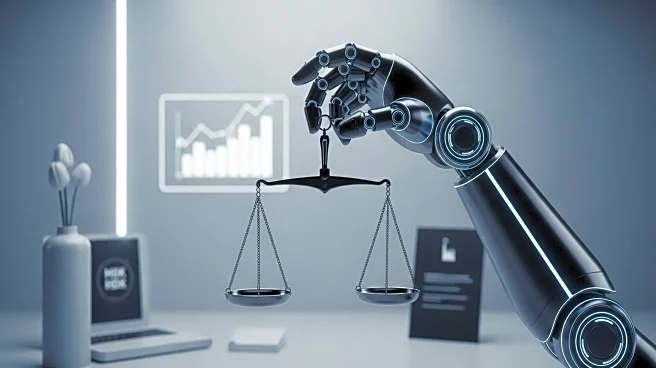What's Happening?
David Zervos, a market analyst from Jefferies, has raised concerns about the impact of artificial intelligence (AI) on the U.S. labor market. He suggests that while AI could drive economic growth, it may also lead to increased unemployment. Zervos argues that the Federal Reserve should prioritize labor market stability over inflation control, as AI advancements could result in significant job losses. He predicts that millions of jobs could be affected in the coming years, urging the Fed to consider these potential disruptions in its policy decisions.
Why It's Important?
The rapid growth of AI technology presents both opportunities and challenges for the U.S. economy. While AI can enhance productivity and innovation, it also threatens traditional job roles, potentially leading to higher unemployment rates. This situation poses a dilemma for the Federal Reserve, which must balance its dual mandate of promoting maximum employment and stable prices. The potential job displacement caused by AI could have far-reaching implications for economic policy, workforce development, and social stability.
What's Next?
As AI continues to evolve, the Federal Reserve and policymakers will need to address the potential labor market disruptions. Strategies may include investing in workforce retraining programs, supporting sectors likely to benefit from AI, and developing policies to mitigate job losses. The ongoing dialogue between technology leaders and economic policymakers will be crucial in shaping a balanced approach to AI integration.










